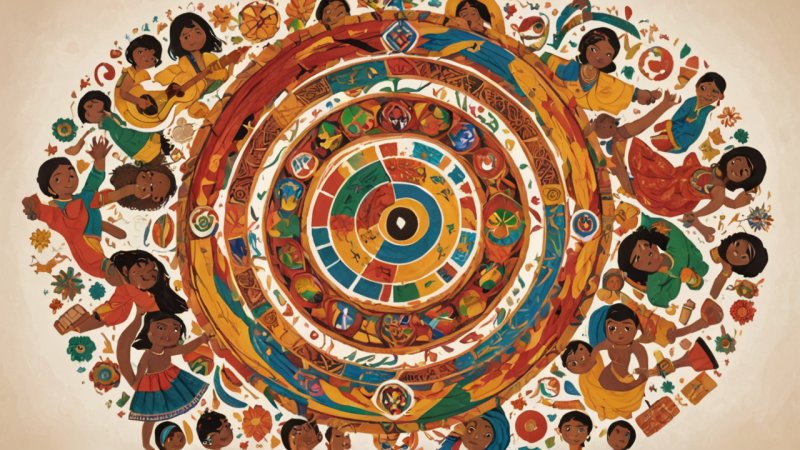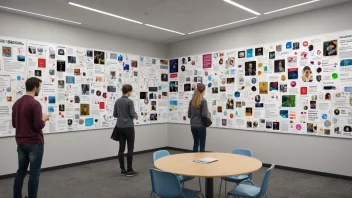Cultural appropriation is a term that has gained immense traction in recent years, often sparking heated debates and discussions across various platforms. It refers to the act of taking or borrowing elements from one culture by members of another culture, particularly when the dominant culture appropriates aspects of a marginalized or minority culture without permission or understanding. This phenomenon is complex and multifaceted, intertwining issues of power, identity, and respect. In this article, we will explore the nuances of cultural appropriation, its historical context, implications in contemporary society, and the ongoing discourse surrounding it.
Defining Cultural Appropriation
At its core, cultural appropriation involves the adoption of elements of one culture by members of another culture. While cultural exchange is a natural and often positive aspect of human interaction, cultural appropriation becomes problematic when it involves a power imbalance. This typically occurs when a dominant culture borrows from a marginalized culture, often stripping the original context and significance of the appropriated elements.
Key Characteristics
- Power Dynamics: Cultural appropriation is often rooted in historical power imbalances, where dominant groups exploit or commodify the cultural expressions of marginalized communities.
- Lack of Understanding: Appropriators often lack a deep understanding of the cultural significance behind the elements they adopt, leading to misrepresentation and disrespect.
- Commercialization: Many instances of cultural appropriation involve the commercialization of cultural symbols or practices, stripping them of their original meaning for profit.
The Historical Context of Cultural Appropriation
To fully grasp the complexities of cultural appropriation, it is essential to consider its historical context. Throughout history, dominant cultures have often appropriated elements from marginalized cultures, particularly during periods of colonization and imperialism. This appropriation has led to the erasure of cultural identities, as well as the commodification of cultural practices.
Colonialism and Cultural Appropriation
Colonialism played a significant role in shaping the dynamics of cultural appropriation. Colonizers often imposed their own cultural values and practices on indigenous populations, simultaneously appropriating aspects of indigenous cultures that they found appealing. This resulted in a complex interplay of domination and resistance, where colonized peoples adapted elements of the colonizers’ culture while simultaneously having their own cultures appropriated and devalued.
Modern Examples
In contemporary society, cultural appropriation manifests in various forms, from fashion to music to art. For example, the use of traditional Native American headdresses in fashion shows or music festivals has drawn significant criticism, as these items hold deep spiritual significance within Native cultures. Similarly, the adoption of African American vernacular and styles by non-black artists can be seen as a form of cultural appropriation, particularly when it lacks acknowledgment of the cultural roots and struggles associated with those expressions.
The Implications of Cultural Appropriation
The implications of cultural appropriation extend beyond mere aesthetics; they touch on issues of identity, representation, and social justice. When elements of a marginalized culture are appropriated without understanding or respect, it can lead to feelings of alienation and resentment among members of that culture.
Identity and Representation
For many marginalized communities, cultural elements are intertwined with their identity and heritage. When these elements are appropriated, it can dilute their significance and contribute to a broader narrative of erasure. This raises questions about who gets to represent a culture and how that representation is constructed.
Social Justice and Equity
Cultural appropriation also intersects with social justice issues. The commodification of cultural elements often benefits the dominant culture while leaving the original creators and communities marginalized. This raises ethical questions about equity and fairness in cultural exchange.
Navigating Cultural Exchange Responsibly
Given the complexities surrounding cultural appropriation, it is crucial to approach cultural exchange with sensitivity and respect. Here are some guidelines for navigating cultural exchange responsibly:
1. Educate Yourself
Understanding the historical and cultural significance of the elements you wish to engage with is essential. Take the time to learn about the culture, its history, and the context surrounding the elements you are interested in.
2. Acknowledge Origins
When borrowing from another culture, it is important to acknowledge its origins. Give credit to the culture and its people, and be transparent about your intentions.
3. Support Authentic Voices
Whenever possible, support creators and artists from the culture you are interested in. This helps to ensure that the original community benefits from the cultural exchange.
4. Be Open to Feedback
Engage in conversations with members of the culture you are borrowing from. Be open to feedback and willing to learn from their perspectives.
The Ongoing Discourse
The discourse surrounding cultural appropriation continues to evolve, reflecting the changing dynamics of culture and society. Social media has played a pivotal role in amplifying voices and perspectives, enabling marginalized communities to share their experiences and challenge instances of appropriation.
Activism and Awareness
Activism surrounding cultural appropriation has grown, with many individuals and organizations advocating for greater awareness and respect for cultural practices. This activism often emphasizes the importance of recognizing power dynamics and fostering genuine cultural exchange.
Future Directions
As society becomes increasingly interconnected, the conversation around cultural appropriation will likely continue to evolve. It is essential for individuals and communities to engage in ongoing dialogue, fostering mutual respect and understanding in cultural interactions.
Conclusion
Cultural appropriation is a complex and nuanced issue that requires careful consideration and understanding. By acknowledging the historical context, recognizing power dynamics, and engaging in respectful cultural exchange, we can work towards a more equitable and just society. As we navigate the intricacies of culture in a globalized world, it is crucial to foster an environment of respect and appreciation for the diverse cultural expressions that enrich our lives.






